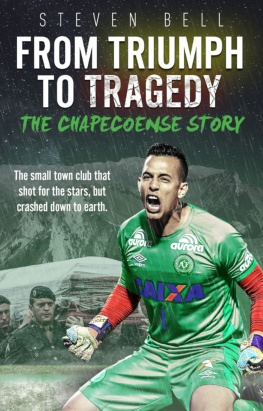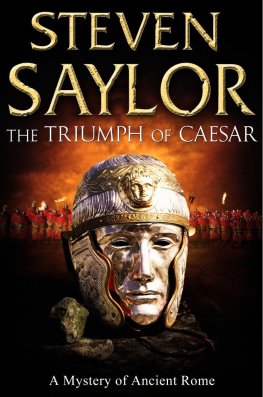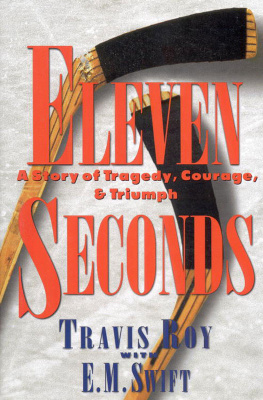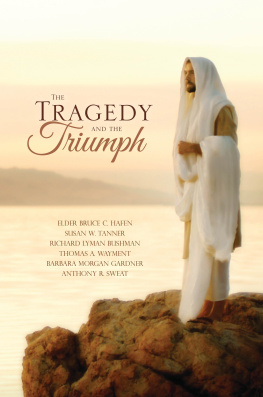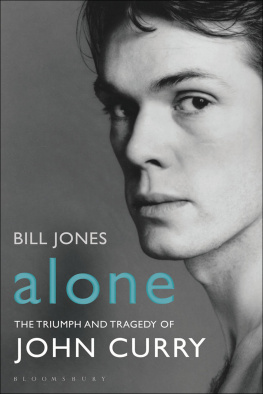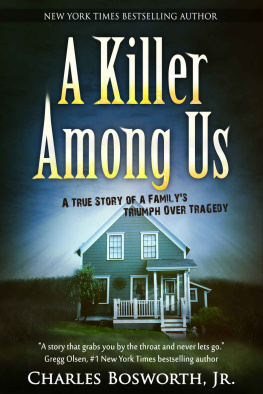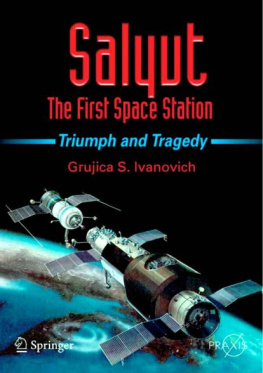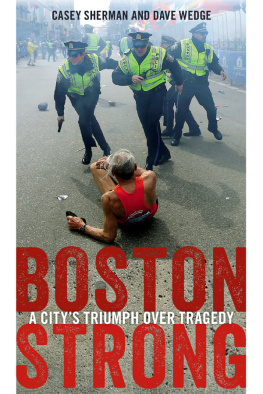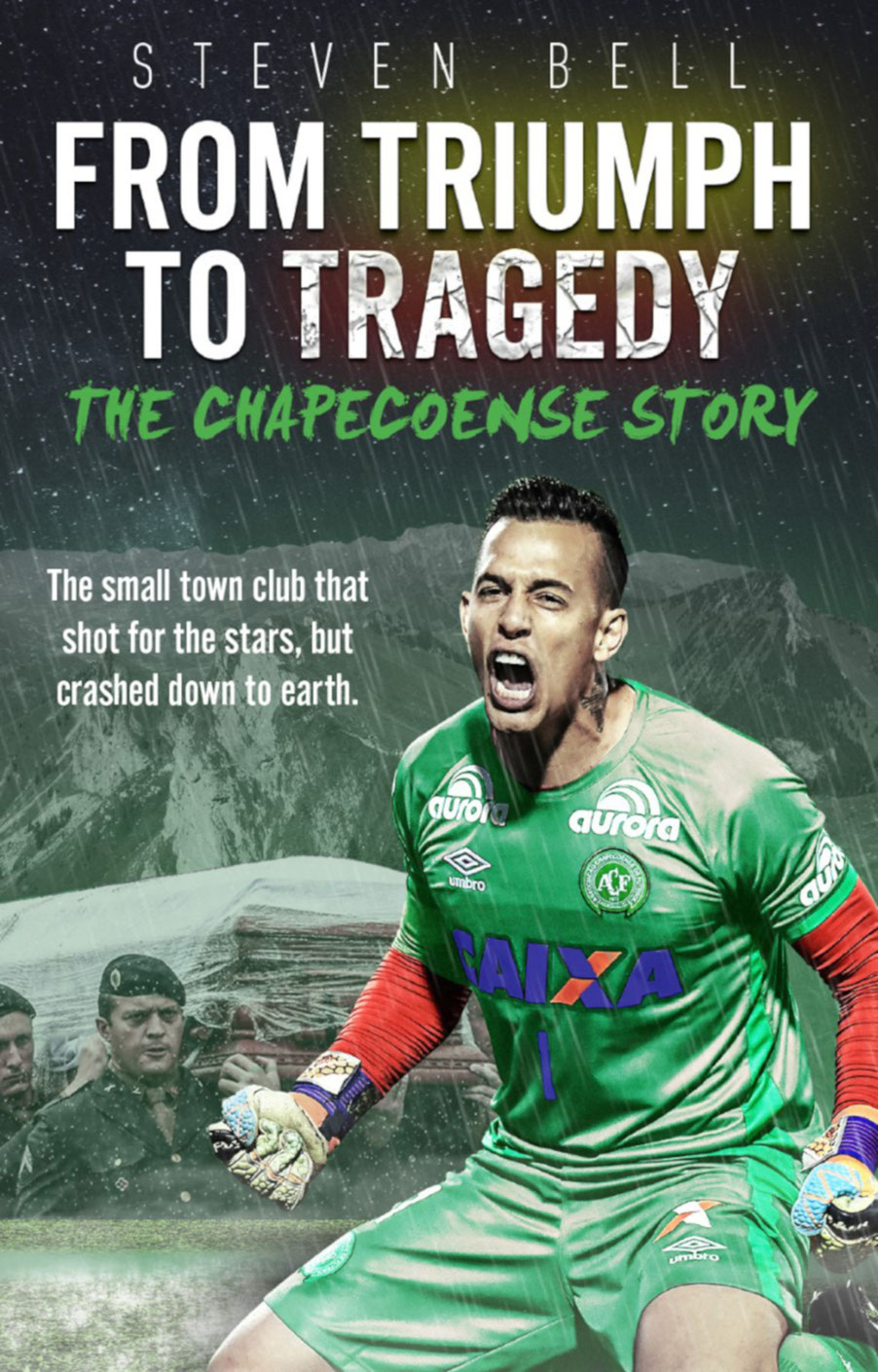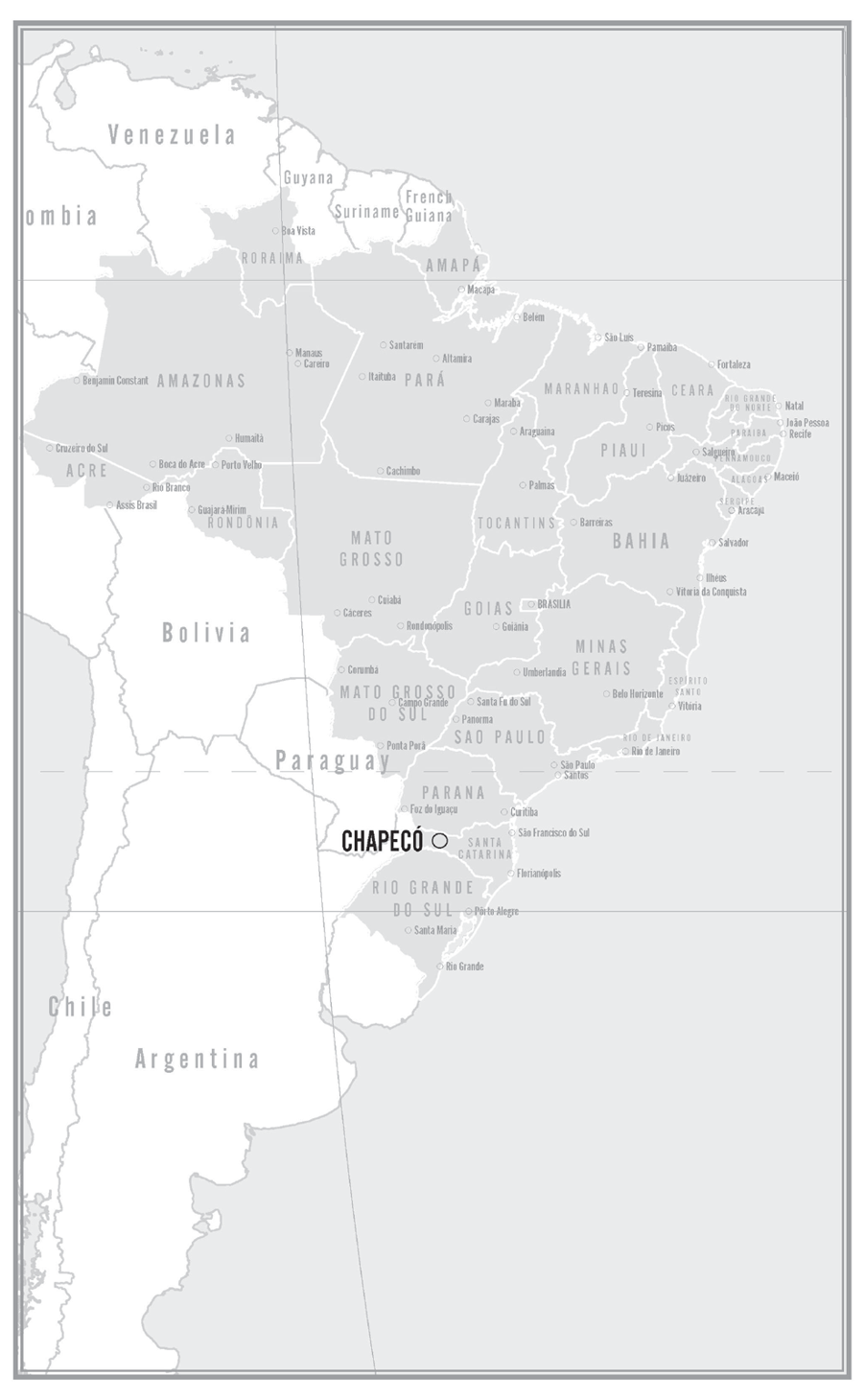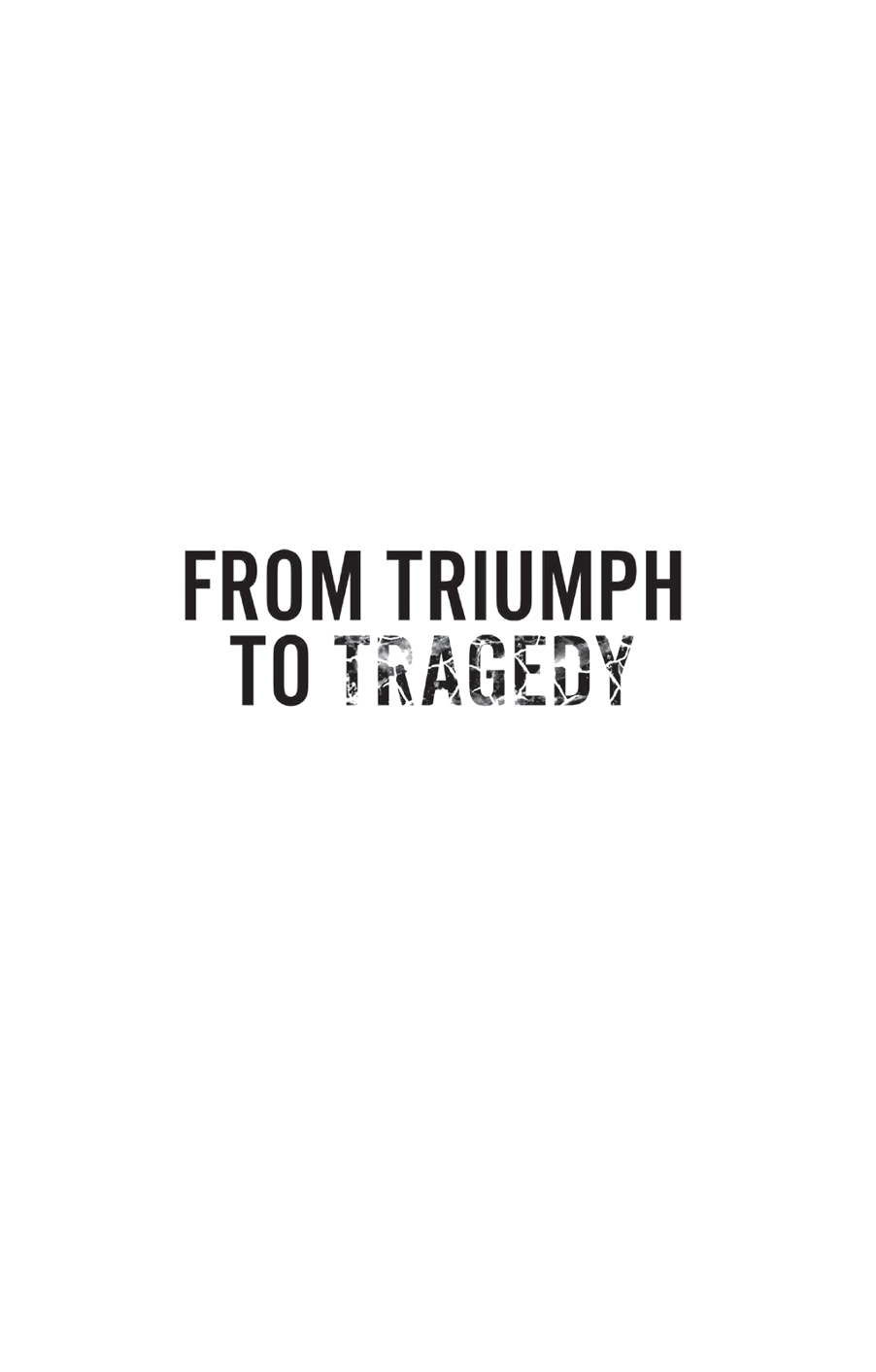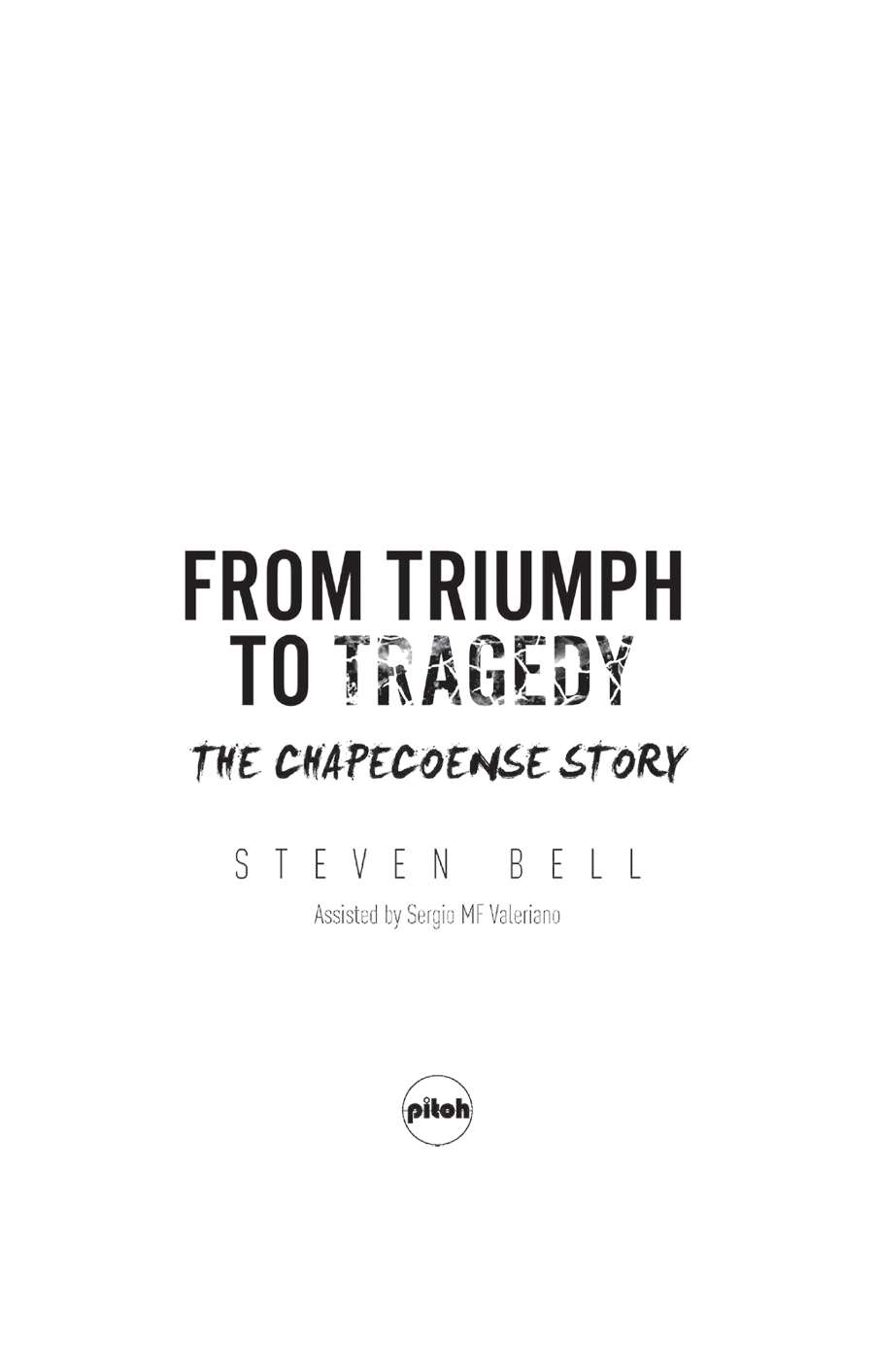First published by Pitch Publishing, 2019
Pitch Publishing
A2 Yeoman Gate
Yeoman Way
Durrington
BN13 3QZ
www.pitchpublishing.co.uk
Steven Bell, 2019
All rights reserved under International and Pan-American Copyright Conventions. By payment of the required fees, you have been granted the non-exclusive, non-transferable right to access and read the text of this e-book on-screen. No part of this text may be reproduced, transmitted, downloaded, decompiled, reverse-engineered, or stored in or introduced into any information storage and retrieval system, in any form or by any means, whether electronic or mechanical, now known or hereinafter invented, without the express written permission of the Publisher.
A CIP catalogue record is available for this book from the British Library
Print ISBN 978-1-78531-523-7
eBook ISBN 978-1-78531-582-4
--
Ebook Conversion by www.eBookPartnership.com
Contents
Ali comeava, uma linda histria.
Que a mensagem deixada por eles
sirva para que todos ns,
valorizemos cada dia e que as
boas lembranas no desapaream de
nossas memrias.
It began there, a beautiful story.
May the message left by them be
for us to value each day,
and for us not to allow good
memories to disappear.
Two-time Chapecoense head coach
Vincius Eutropio to the author;
5 February 2019
Dedicated to:
Luiz Carlos Salori
Eduardo de Castro Filho
Anderson Rodrigues Paixo Arajo
Anderson Roberto Martins
Marcio Bestene Koury
Rafael Correa Gobbato
Luiz Cesar Martins Cunha
Luiz Felipe Grohs
Sergio Luis Ferreira de Jesus
Anderson Donizette Lucas
Adriano Wulff Bitencourt
Cleberson Fernando da Silva
Emerson Fabio Di Domenico
Eduardo Luiz Preuss
Mauro Luiz Stumpf
Sandro Luiz Pallaoro
Nislon Folle Junior
Decio Sebastio Burtet Filho
Jandir Bordignon
Gilberto Pace Thomas
Mauro Dal Bello
Edir Flix de Marco
Davi Barela Dvi
Ricardo Philippi Porto
Delfim Pdua Peixoto Filho
Marcos Danilo Padilha
Ananias Eloi Castro Monteiro
Arthur Brasiliano Maia
Bruno Rangel Domingues
Ailton Cesar Junior Alves da Silva
Clber Santana Loureiro
Dener Assuno Braz
Filipe Jos Machado
Jos Gildeixon Clemente de Paiva
Guilherme Gimenez de Souza
Everton Kempes dos Santos Gonalves
Lucas Gomes da Silva
Matheus Bitencourt da Silva
Sergio Manoel Barbosa Santos
Willian Thiego de Jesus
Tiago da Rocha Vieira
Josimar Rosado da Silva Tavares
Marcelo Augusto Mathias da Silva
Mateus Lucena dos Santos
Victorino Miranda Chermont
Rodrigo Santana Gonalves
Devair Paschoalon
Lilacio Pereira Junior
Paulo Julio Morales Clement
Mrio Srgio Pontes de Paiva
Guilherme Marques
Ari de Araujo Junior
Guilherme Laars
Giovane Klein Victria
Bruno Mauro da Silva
Djalma Araujo Neto
Andre Luis Goulart Podiacki
Laion Machado Espndola
Renan Carlos Agnolin
Fernando Schardong
Edson Luiz Ebeliny
Gelson Gailotto
Douglas Dorneles
Jacir Biavatti
Over Goytia
Sisy Arias
Romel Vacaflores
Alex Quispe
Gustavo Encina
Angel Lugo
and Miguel Quiroga
Introduo
In the summer of 2014, I spent six weeks in Brazil as they hosted their beloved FIFA World Cup.
In that time, I developed a fondness for the country: for its people, for its football, for its passion.
On my return, I kept in touch with one particular friend I had made there and I began to loosely follow their politics and, even more so, their football.
Like most of my smart-phone-enslaved generation, my first act of a morning is to look at the time on my iPhone. The brightness always feels harsh to the blurred, barely open eyes, but we all do it regardless, every day.
During the working week, I will cancel the alarm that is emanating from the device and then spend around ten minutes checking the social media, news and sport applications for any breaking stories whilst my mind catches up to my eyes in the waking process.
Occasionally, something newsworthy will have happened in the time zones of the Americas, and my BBC News application will have sent an alert to my device, showing me the headline on the home screen as I cancel the audible alarm.
If there has been a large sporting event in the US overnight, my Sky Sports application will do the same, sometimes ruining the result for me if I am hoping to catch up with the event later in my own time.
In November of 2016, with the US election victory of Donald Trump sensationally secured, it was becoming the norm to wake with a BBC News alert displayed. They usually informed me of the latest outrageous and potentially world-peace-damaging tweet the president elect had made.
On the morning of Tuesday, 29 November, I had slept at the house of my then girlfriend, now wife, Nicky. I remember it well, as we had been celebrating the one-year anniversary of our first date. On waking, my straining eyes and barely cognitive brain saw that something had happened on the other side of the Atlantic Ocean that had made both BBC News and Sky Sports send me the headline bulletin.
The plane transporting the Brazilian football club Chapecoense to the biggest match in their history had crashed. I was very much aware of Chape (pronounced Sharpay) following their rapid rise to prominence.
As the hours went on, I checked various news outlets for the latest on the accident. There were mixed reports on casualties and on what had actually happened.
Within a couple of days, the full extent of the tragedy had emerged and the story was major news here in the UK, and the world over. #ForaChape (#BeStrongChape) was trending worldwide for a week or two as the biggest stars from football and beyond, all around the world, paid tribute.
After two to three weeks, there was no more coverage of the story in the British media. We were back to the same news coverage as before, dominated almost entirely by Donald Trump and Brexit.
But my interest had been peaked almost to obsession by the event. Everything I read on the subject just made me search for more information.
I began to believe it was possibly the greatest sporting story of them all and became frustrated that it seemed to be cared about and known of so little, even amongst football fanatics in the UK and beyond. So, I decided I would attempt to fulfil the lifelong ambition of writing a book, in a bid to bring the tale to the fore in the English language.

